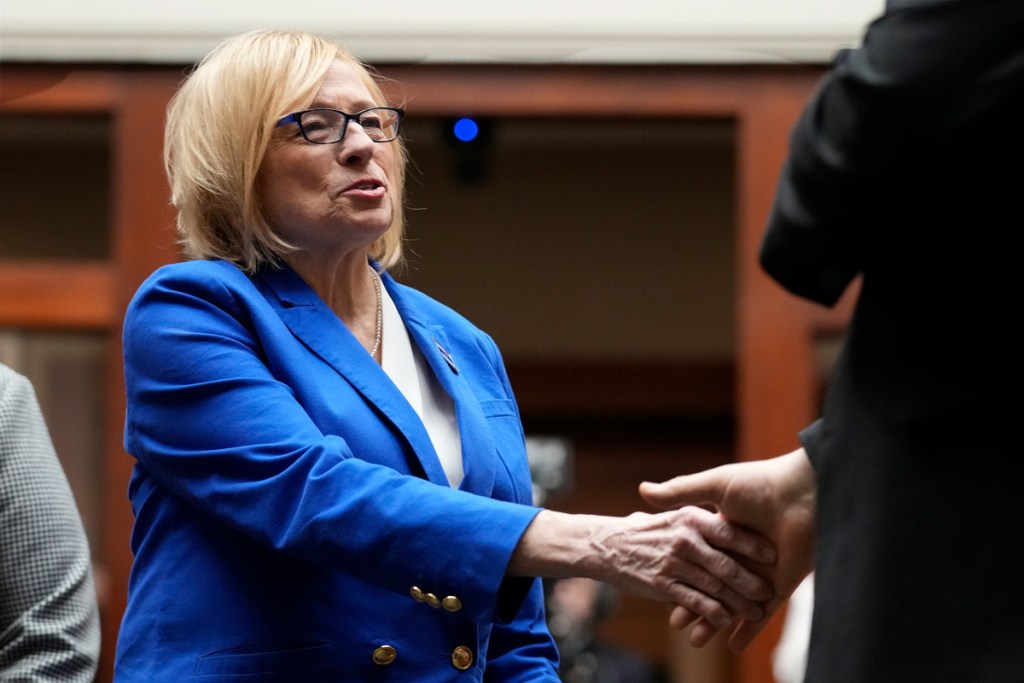
AUGUSTA, Maine — Gov. Janet Mills signed into law Monday an addition to the two-year state budget headlined by mental health and violence prevention initiatives after the Lewiston mass shooting, relief for areas of Maine hit by severe winter storms, and housing investments.
The supplemental budget adds on $127.4 million to the spending plan the Democratic governor signed last year to take it to $10.47 billion. It will take effect 90 days later due to Democratic lawmakers passing the plan with a simple rather than two-thirds majority.
Last week, Democrats who control the Legislature passed the budget addition over Republican opposition before adjourning, though not without late drama that included Mills threatening to veto the plan if it included a bipartisan amendment to combine $60 million in storm relief with higher pay for educational technicians, veteran home reimbursements and other proposals.
In the end, the governor won that battle over members on both sides of the aisle, though various funding levels for those other initiatives unrelated to storm relief made it into the budget. Democrats on the budget committee also reversed their initial decisions to pull money from the transportation budget and scale back a pension deduction.
The addition includes several initiatives Mills and House Speaker Rachel Talbot Ross, D-Portland, put forward after the Oct. 25 mass shooting that left 18 dead and 13 injured in Maine’s deadliest rampage on record, such as $3.2 million to create an Office of Violence Prevention, $4.4 million to build crisis receiving centers in Lewiston, Penobscot County and Aroostook County, $1.7 million to hire 16 additional Maine State Police personnel and $5 million to cover out-of-pocket health care expenses for those affected by “mass violence.”
Additional gun control bills are on the governor’s desk awaiting her decisions.
The budget addition also has $50 million to rebuild infrastructure and $10 million for small businesses after destructive December and January storms, along with $28 million to help municipalities and tribes prepare for future extreme weather, cover the state’s share of estimated disaster recovery costs and repair state parks, historic sites and lands.
Additional investments include $21 million for an emergency housing relief fund, $30 million to build more housing in Maine and $18 million in rent relief, among other areas in the budget.
Mills said in a Monday news release the budget “makes vital investments in things Maine people need right now like storm relief, mental health services, child care, housing and much more.”
“It is the product of a lot of discussion and negotiation, and while we will need to keep a close eye on the budget next year in light of flattening revenues, this budget takes important steps forward to address our state’s most pressing problems,” Mills said.











